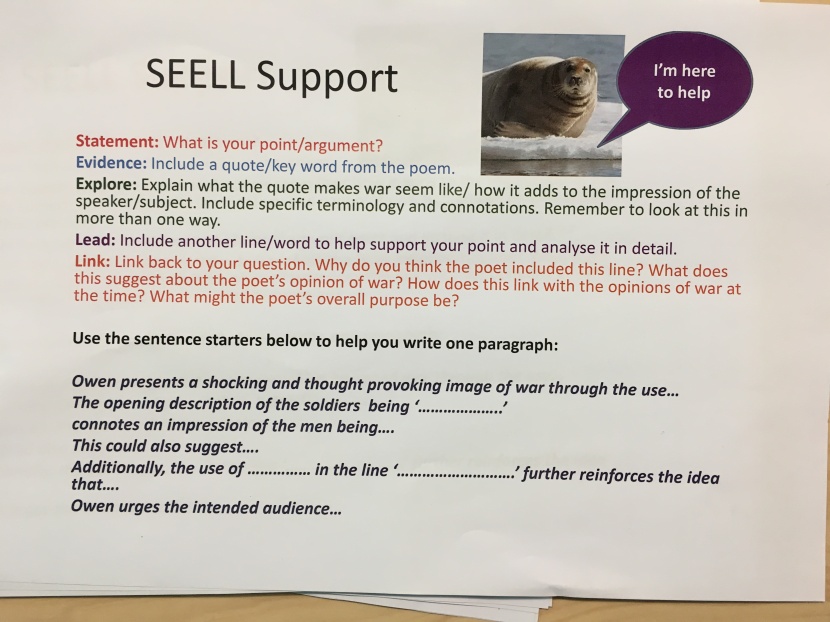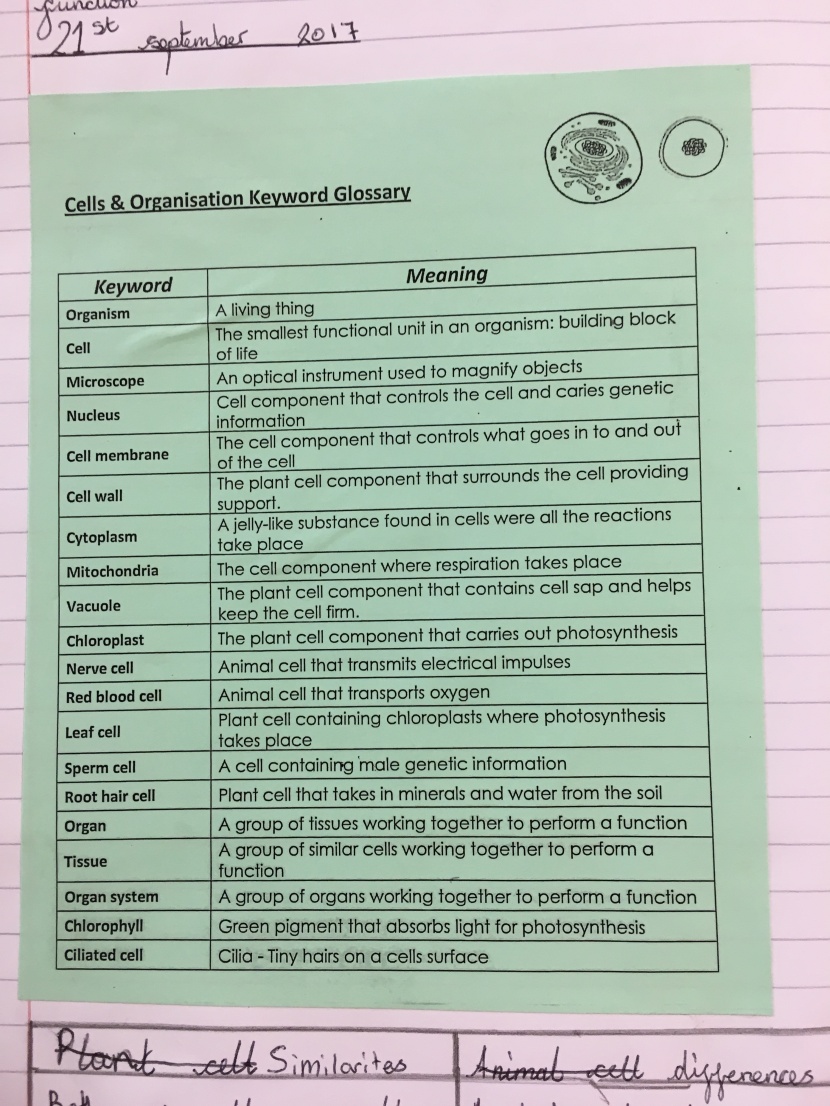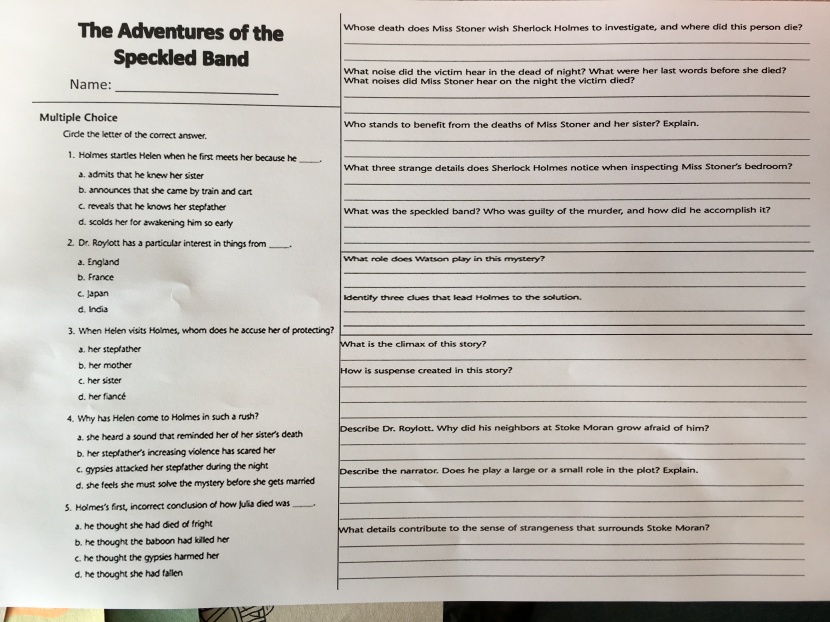Bright sports // Friday 6th October
Ms Camwell (English) – KS3 students were engaging with a Wilfred Owen (good cultural capital). Ms Camwell had set the class up with an activity which asked them to write about their thoughts on the poem and what it meant. Whilst students were writing (mainly in silence unless they needed to ask a question) Ms Camwell circulated the room challenging and supporting students with their writing. Ms Camwell had also prepared a scaffold to help students who were struggling – differentiating by instruction instead of task.

Scaffold to support students with their writing.
Ms Jacobs (Science) – KS3 students were watching Ms Jacobs conduct a short practical to help explain a scientific process. With students gathered around her she began to ask them a series of questions. As students answered other students were challenged to build upon the previous answer and develop their knowledge. Student books had lots of useful information in them to support learning (see below), a great way to articulate high expectations!

Clear expectations in the front of every Science book.

Key vocabulary for each unit of work.
Mr Rogers (Science) – Mr Rogers was in the middle of questioning the class about the focus of todays lesson. It was clear that Mr rogers had set high expectations for his students and trained students on how he wanted them to engage with questioning – making the most of every second in the lesson. As he posed questions to the class he gave plenty of wait time so that students could think about an answer. He also gave students an opportunity to discuss a possible answer with the person next to them before taking answer and then bouncing the answer around the class. Great questioning!
Ms Cicero (Maths) – In a similar style to Mr Rogers, Ms Cicero was questioning students about the focus of the maths lesson. As she posed a question a period of wait time ensued allowing students to really think about a possible answer and even check their books to help if needed. As more hands went up Ms Cicero verbally counted the hands that were going up and in a 30 second period about 10 hands went up. Allowing wait time is really important for students to grapple with challenging questions. Sometimes as a teacher it’s instinctive to take an answer from the first hand that goes up immediately after asking a question, however this denies lots of other students a chance to think about and formulate an answer.
Ms Walker (English) – Ms Walkers’ class were working on a Sherlock Holmes book. Students had really engaged with the story. When I asked one student about the book he began explaining a brief history of the author and the significance of his work (and that was before he then went on to tell me about the specific book!). Having spent some time in the lesson reading the book (great to see KS3 students reading challenging texts), students were now be quizzed on what they had understood. This took the form of a MCQ with some additional written questions. This is a great method for identifying common misconceptions which can then be addressed with the whole class through re-teaching.

Example of MCQ in English.
